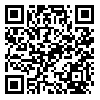Volume 9, Issue 2 (10-2017)
2017, 9(2): 219-230 |
Back to browse issues page
Download citation:
BibTeX | RIS | EndNote | Medlars | ProCite | Reference Manager | RefWorks
Send citation to:



BibTeX | RIS | EndNote | Medlars | ProCite | Reference Manager | RefWorks
Send citation to:
Ardestani M, Niknami S, Hidarnia A, Hajizadeh E. Validity and reliability of the Social Cognitive
Theory Questionnaire in Tehranian Adolescent
Girl student’s Physical Activity behavior
. North Khorasan University of Medical Sciences 2017; 9 (2) :219-230
URL: http://journal.nkums.ac.ir/article-1-1201-en.html
URL: http://journal.nkums.ac.ir/article-1-1201-en.html
1- , niknamis@modares.ac.ir
Abstract: (6534 Views)
Background & objectives: Regular physical activity as one of the main components of healthy life style is low in adolescent girls. Social Cognitive Theory (SCT) is one of the most effective conceptual frameworks to assess physical activity behavior. This study aimed to assess the validity and reliability of the SCT questionnaire in adolescent female student’s Physical Activity behavior in Tehran.
Material and Methods: The SCT questionnaire was assessed via content, face, construct validity, and reliability (stability and internal consistency). A cross-sectional study with confirmatory factor analyses (CFA) was done to assess construct validity among 400 adolescent female students in one of the educational districts in Tehran (2013). The samples were chosen with multi-stage sampling. Statistical analyses were done by SPSS16 and LISREL8.8 software (the maximum likelihood (ML) estimation to using matrix covariance).
Results: The results of CVI (0.94-1), CVR (0.97-1), and impact score (4.6-4.9) were acceptable for all scales. Six constructs of SCT (self-efficacy, self-efficacy to overcome impediments, self-regulation, outcome expectancy, friend and family support) were supported with the result of confirmatory approach. Fit indices showed that the measuring model of SCT had a suitable fit to data (X2=2065/96, df=930, p<0/0001, GFI=0/84, RMSEA=0/04, RMR=0/02, AGFI=0/83, =2/22) (P<0.05). The reliability of the scales was acceptable according to the result of Cronbach’s Alpha (0.78-0.85) and Intraclass correlation coefficient (0.73-0.9).
=2/22) (P<0.05). The reliability of the scales was acceptable according to the result of Cronbach’s Alpha (0.78-0.85) and Intraclass correlation coefficient (0.73-0.9).
Conclusion: SCT questionnaire was valid and reliable to assess the physical activity behavior in these adolescent female students. This scale can be used in exercise behavior study and designing educational program interventions in such group.
Material and Methods: The SCT questionnaire was assessed via content, face, construct validity, and reliability (stability and internal consistency). A cross-sectional study with confirmatory factor analyses (CFA) was done to assess construct validity among 400 adolescent female students in one of the educational districts in Tehran (2013). The samples were chosen with multi-stage sampling. Statistical analyses were done by SPSS16 and LISREL8.8 software (the maximum likelihood (ML) estimation to using matrix covariance).
Results: The results of CVI (0.94-1), CVR (0.97-1), and impact score (4.6-4.9) were acceptable for all scales. Six constructs of SCT (self-efficacy, self-efficacy to overcome impediments, self-regulation, outcome expectancy, friend and family support) were supported with the result of confirmatory approach. Fit indices showed that the measuring model of SCT had a suitable fit to data (X2=2065/96, df=930, p<0/0001, GFI=0/84, RMSEA=0/04, RMR=0/02, AGFI=0/83,
Conclusion: SCT questionnaire was valid and reliable to assess the physical activity behavior in these adolescent female students. This scale can be used in exercise behavior study and designing educational program interventions in such group.
Type of Study: Orginal Research |
Subject:
Basic Sciences
Received: 2017/09/23 | Accepted: 2017/09/23 | Published: 2017/09/23
Received: 2017/09/23 | Accepted: 2017/09/23 | Published: 2017/09/23
Send email to the article author
| Rights and permissions | |
 |
This work is licensed under a Creative Commons Attribution-NonCommercial 4.0 International License. |





